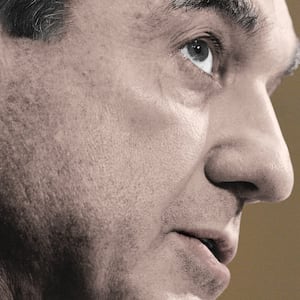Former Special Counsel Robert Mueller has stayed out of the limelight since completing his work last year by submitting an exhaustive report on the details of the Russia probe and presidential obstruction, and giving testimony before Congress.
In his absence, Attorney General Bill Barr has launched a counter-investigation to effectively Monday morning quarterback the entirety of the Russia investigation, and has already intervened in both the Roger Stone and the Michael Flynn proceedings to largely undo the very work of the Special Counsel’s Office. President Trump, ever the thin-skinned bully, has unleashed a tirade of attacks on those who assisted Mueller. Career line attorneys at the Department of Justice withdrew from the Roger Stone and Michael Flynn cases, and in one instance left government entirely.
Mueller’s work is being taken apart, piece by piece. It’s time for him to speak up.
Mueller’s silence and stoicism have been noble and professional, and consistent with prior customary practice. But nothing about this administration is typical and past normal rules no longer have a place, at least not if the rule of law is to survive the Trump presidency.
Some brave individuals have already begun speaking out to express their dissent. Approximately 2,000 DOJ alumni have signed onto a letter criticizing the attorney general's actions. Mary McCord, the former head of the National Security Division, disputed how her past written comments were characterized by DOJ as justification to drop the Flynn charges, and one of Mueller’s former subordinates — Jonathan Kravis — has made clear his concern about the ongoing politicization of cases tied to the president’s allies.
Mueller needs to add his voice to this growing chorus of concern.
The nature and substance of the Mueller report was already mischaracterized once before by the Attorney General in his initial pre-release press conference, and he has continued to try and whitewash the entire investigation in subsequent remarks and through the Durham investigation. Mueller’s congressional testimony, unfortunately, was a bland and repetitive recitation of basic facts that the American public could simply read in his team’s exhaustive report. Those who know Mueller or his reputation anticipated that restrained and anti-climactic performance.
This moment is different.
Neither Mueller nor anyone from his team needs to (nor should they) divulge classified information or reveal grand jury information. Not only would that be illegal, but it would defy the very principles that need to be upheld. They still have to comply with federal laws regarding disclosure of government information, particularly non-disclosure agreements they signed that protect classified information.
Nor do they need to start revealing additional details from the special counsel’s report that were redacted for reasons other than those implicated by federal criminal statutes. Mueller and his prosecutors should try to adhere to at least the spirit of non-binding government policies regarding the disclosure of information that the government claims it has a legitimate interest in protecting.
But Mueller and his former team need to defend the legitimacy of their work.
For example, they can explain why the plea deal with Flynn was pursued in the manner it was, including addressing legitimate questions about the extent to which they believed Flynn was intentionally lying to FBI agents and if the negotiations with Flynn’s original lawyers met the government’s ethical and legal obligations. They can speak about the seriousness of the felonies for which Stone was tried and convicted, and opine on whether the original sentence recommendation that the attorney general overruled was proper and why under the circumstances.
Most importantly, they can provide a reassuring voice of reason at a time when the legal and law enforcement community is crying out for stability. The president is too busy describing various FBI officials as “traitors” and “human scum". The attorney general has already been chastised by one federal judge for misrepresenting the findings of Mueller’s team, and many career professionals believe he lacks credibility at this point outside of the president’s political base.
Mueller and his team can outline why, as messy as it was, the work they performed—and the criminal prosecutions they brought—were legitimate and necessary to ensure equal application of the rule of law in this country.
Unfortunately, others who played key roles in the cases, such as former FBI Director James Comey and Deputy Director Andrew McCabe, no longer have that type of credibility across the ideological spectrum to persuasively make that case. Mueller does.
Mueller and his team are decent, dedicated professionals, but this is not a decent time. They need to step up to the microphone and speak to the American public.
It is no longer a question of whether they can do it, but how can they not?
Bradley P. Moss and Mark S. Zaid are national security attorneys in Washington, D.C.








